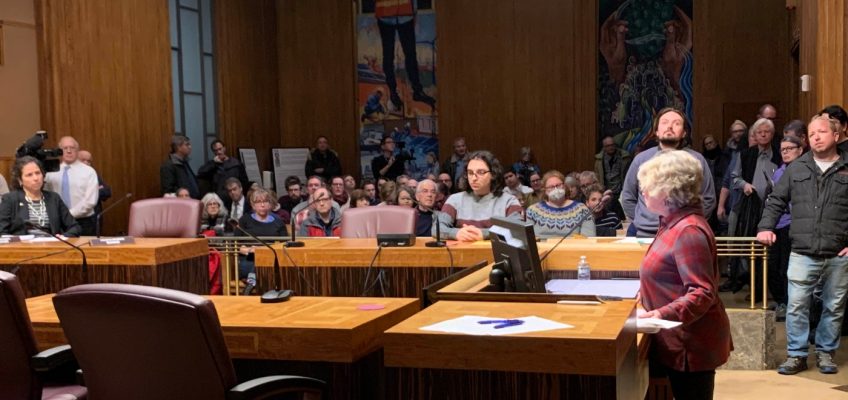City Council has the ultimate authority to set the St. Paul city budget
Following an unusually contentious Truth in Taxation hearing last week, Saint Paul City Council members appeared to be holding firm on their plan to reduce the mayor’s proposed levy from 7.9 to 5 percent, a cut of $6 million from his proposed budget. Subsequently, the council turned down the mayor’s offer to lower the levy to 7.2% the next day.
Trying to explain the stalemate, Deputy Mayor Tincher remarked that the four new councilwomen are “unfamiliar” with the budget process. This is a striking comment, given that councilwomen proposing the reduction include two veterans, Councilmembers Nelsie Yang and Rebecca Noecker, the senior member now in her ninth year on the council. Meanwhile, some city staff are telling the council that they must negotiate any levy reduction and spending cuts with the mayor.
This staff direction is both political and unprofessional, as it is blatantly inaccurate, given the powers and responsibilities granted the City Council in the City Charter.
Related Articles
SPPS teachers, parents, members in letter to district call for training to address antisemitism
St. Paul community leaders inviting public to summit on reducing gun violence
New overnight warming spaces open for unsheltered in St. Paul
The St. Paul Chamber Orchestra announces its 29th balanced budget in the past 31 years
Minneapolis man driving 90 mph when he crashed into parked car in St. Paul church lot, vehicular homicide charge says
Saint Paul’s Home Rule Charter was adopted in 1972, commonly known as the St. Paul Strong Mayor, Strong City Council form of government. Key provisions in the Charter detail the responsibilities and authorities of both the mayor and the City Council when it comes to budget preparation and adoption (see relevant City Charter Sections, 10.2, 10.3, 10.6, 6.08, 6.10, and 11.1 at stpaul.gov).
While negotiation may be useful in bringing the two branches of government together voluntarily to reach an agreement, it is not required by the charter. A failed negotiation is inconsequential to the council’s role of financial authority over the city.
The mayor annually proposes a complete finance and spending plan at a publicly noticed budget message usually in mid-August. The City Council is required to hold a public hearing on the mayor’s proposed budgets and property tax levy. The Council has the authority to revise the mayor’s proposed spending and financing plans. The City Council must adopt budgets by council resolutions and must certify tax levies by separate resolution.
St. Paul’s charter requires the City Council to adopt a final tax levy by no later than 12 days before the Minnesota statutory certification deadline of Dec. 30. This means the City Council must certify its final tax levy, no later than Wednesday, Dec. 18. This early adoption date is required under the Charter in case a mayor were to veto some of the City Council’s final actions.
Under the charter, the mayor has the power to veto any ordinance or resolution, including the council’s final tax levy certification, within five business days of its adoption. He is also given the power to “line-item” veto any measure appropriating money to spend. The council then has the power to override a mayoral veto if five council members vote to do so.
If the City Council passes a resolution certifying a property tax levy that was a 5% increase for 2025, and the mayor vetoed the resolution because he proposed a 7.9% increase, two things could happen: First, the council could override the veto if five members voted to have the lower 5% tax levy increase. But if there are not five votes to override the veto, and no new Property Tax Levy Certification resolution is passed for 2025, the charter states that if the City Council fails to fix an amount for a tax levy, then the amount will be the same as the amount for the current year (2024); meaning a ZERO percentage increase in the property tax levy for 2025.
While the mayor proposes the levy and the budget, the City Council has full authority over the financial affairs of the city, including the power to levy and collect taxes except as limited by the state constitution and laws, and by the city charter.
— Jane Prince and Greg Blees
Jane Prince served as a member of the St. Paul City Council for eight years.
Greg Blees served as St. Paul city budget director for nine years and St. Paul City Council fiscal policy director for 14 years.


Leave a Reply